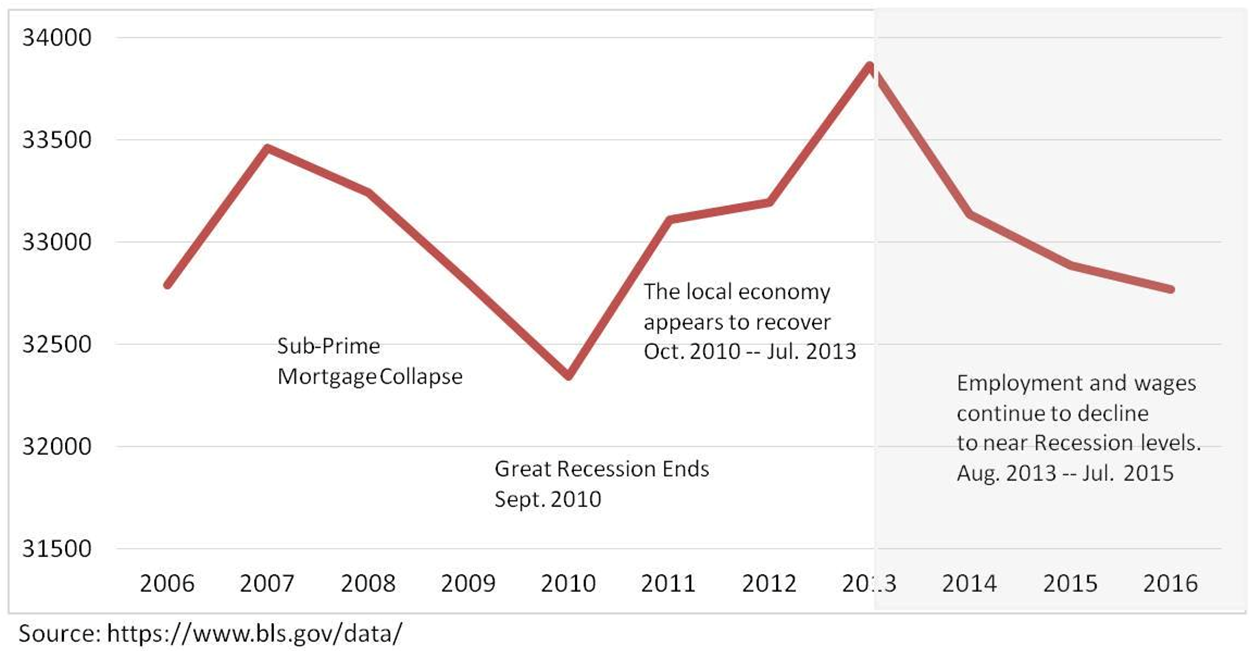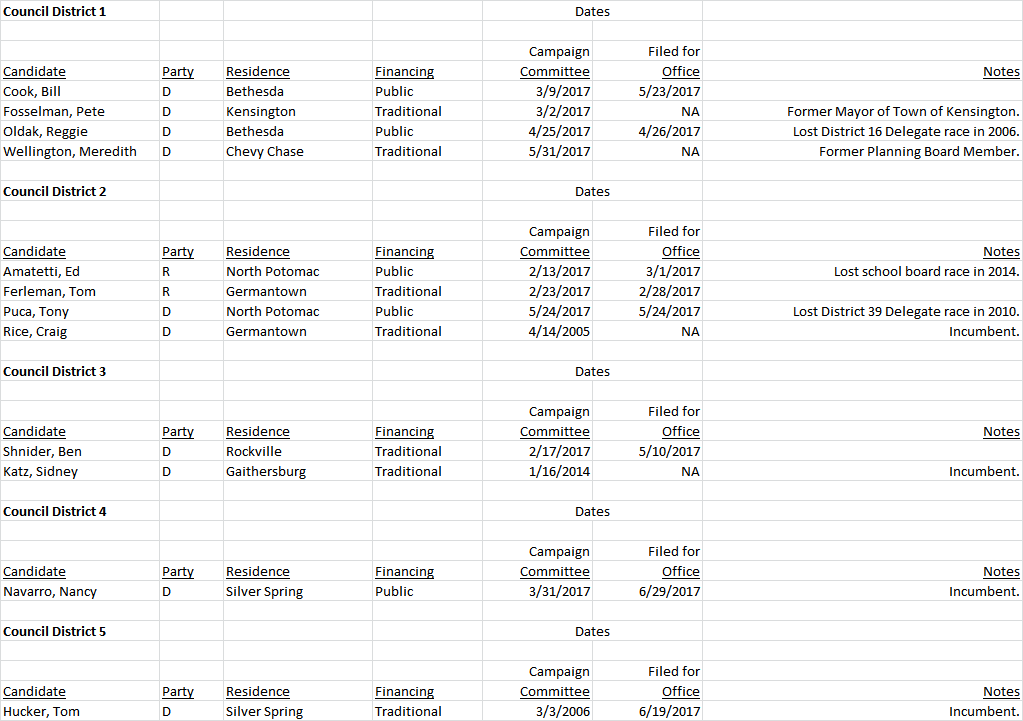By Dr. Tom Ferleman.
[Editor’s note: Seventh State is pleased to present guest blogs from candidates for office. The views here are those of the candidate and not of David Lublin or Adam Pagnucco.]
In order to #BringJobsHome to Montgomery County, we must actively recruit anchor companies and top-tier mid-size businesses that will help expand economic development in Science, Technology, Engineering, and Mathematics (STEM) while also fostering family-owned small business entrepreneurship and innovation.
GROW LOCAL JOBS
My five point Jobs Plan to #BringJobsHome to Montgomery County is one of the most significant ways to increase opportunity and decrease poverty. Both public and private stakeholders in the County must come together to reach agreement and take action to make the economy grow and create local income opportunities for more people.
We must make it easier for businesses to operate in the County. Otherwise they will continue to choose other locations to operate. Advancing our competitiveness in the region is essential to giving people opportunities to increase their wages and strengthen their chances for meaningful and stable employment. Furthermore, growing jobs locally provides a better quality of life, increased lifestyle choices, better neighborhood engagement, healthier nutrition, fitness, and family -time and an overall culture that promotes local families and communities.
The number one uncertainty in business is time. While businesses can plan for cost, taxes, and fees, they struggle to plan for the time it will take to start and complete a project. We must reduce the time it takes to process permits, gain approval, and achieve a fair return on investment. These changes will strengthen business assurance and draw new smart growth jobs to our community.
ROLL BACK TAX INCREASES
My five point Tax Plan for rolling back tax increases will provide incentives to businesses that expand in Montgomery County and additional credits to residential homeowners, the elderly, and veterans. Families are feeling the pain as budgets have shrunk and flexible spending has diminished. It’s as if people are renting their homes from the government.
In order to return homeownership to its long-term investment value, I will submit a bill to establish a supplemental property tax credit for homeowners whose household income as compared to their tax bill puts an undue burden on their quality of life. My plan will double the maximum property assessment amount used for computing property taxes and change the income formula to allow for eligibility at a higher income level.
As part of my #BringJobsHome Plan, I will introduce a ten-year sliding tax credit available to businesses that increase their square footage and the number of full-time employees. As businesses grow, the credit will increase to incentivize local growth. An additional “hometown” credit will be added for businesses that have been in Montgomery County for over ten years.
REDUCE TRAFFIC CONGESTION
My five point Transportation Plan calls for the County to adopt a culture of smart planning, innovation, rapid implementation and efficient execution that focuses on capacity management. Flexible, community-sensitive design should replace by-the-book engineering that inhibits rapid improvements. I will solve problems with innovation focused on results rather than time-consuming studies. Rapidly implemented on-the-ground fixes will be adjusted in light of experience, and we should move on quickly if they don’t work. Our primary concern should be to alleviate traffic congestion as both an economic and quality of life benefit.
We must integrate technology companies, land developers, regional partners and citizens to lead Maryland in innovative traffic management. We must prepare for the introduction of autonomous vehicles, traffic flow timing, sensor-based traffic lights, and adjustable self-governing speed limits for both mass-transit and individual car drivers to ensure community safety concerns are addressed and implementation is efficient, cost-effective, and first and foremost, reduces traffic congestion.
An investment in infrastructure is an investment in jobs. Therefore, I support research into building a second crossing over the Potomac and following through with constructing Mid-County Highway Extended (M-83). Transportation improvements must translate to new business imperatives. Smart growth requires an economic and rural balance that maximizes the social-cultural diversity of our community and benefits every citizen equally.
FUND A ROBUST EDUCATION PIPELINE
My five point Education Plan focuses on preparing students for jobs in our community. A sustainable education pipeline begins with a well-funded school system. We must support strong, family-first early childhood education that prepares young children for success throughout their academic years. It continues with the highest-quality elementary, middle and high school education, all focused on preparing students for success in college and beyond.
We must think locally and act globally; the nations of the world are here. Montgomery County is a transient community. Many people move here for government jobs and eventually return to their homes. This varied culture has always ensured that we are a diverse, adaptable, creative and welcoming community. We must develop an education pipeline that maximizes our geographic uniqueness, sees diversity as an opportunity for creativity and allows students to grow as citizens of the world.
If we want the best schools, we must be willing to pay for the best talent, resources, and time. Across nearly all measures, our community ranks in the top ten in terms of education but we are rarely number one. We must leap to the front of the room and capture the flag of success by recruiting the best and brightest teachers in the world. Teaching is a calling not just a paycheck; our community understands that and is willing to support our teachers as they dream big and achieve greatness.
CONCLUSION
My plan for Montgomery County is challenging; some might even call it a “bridge too far.” Others will even say that it is too hard. I would respond that our elected officials are hired to do hard things. We expect them to forecast a measurable and emboldened vision and then carry it out. But that’s not what we currently have in District 2. I want to represent my community in measurable ways. Our future requires bold leadership that is willing to look beyond the election cycles and find ways to work across political, geographic, policy and budgetary constraints. I am that leader with a measurable plan for the future of our community.
Dr. Tom Ferleman is a Republican candidate for Montgomery County Council in District 2.






